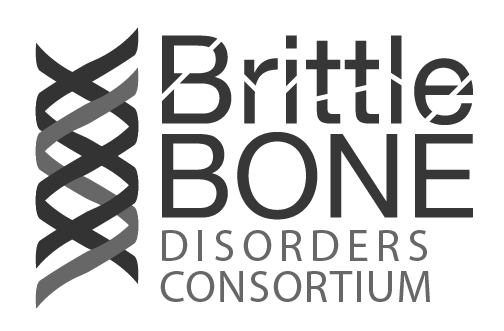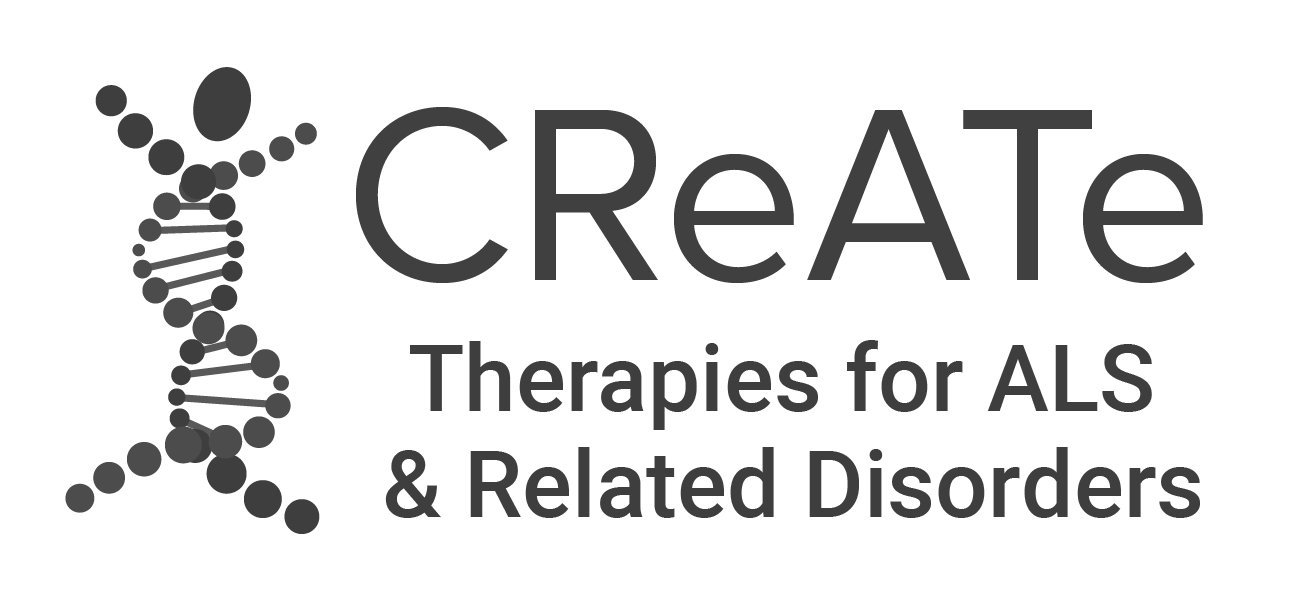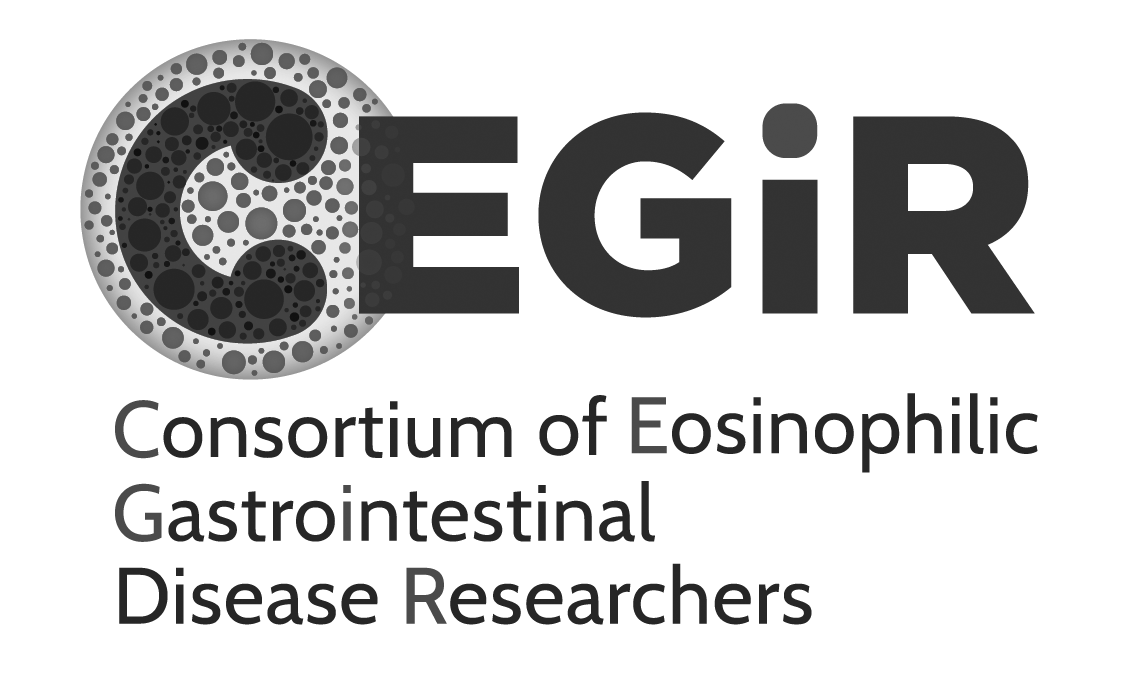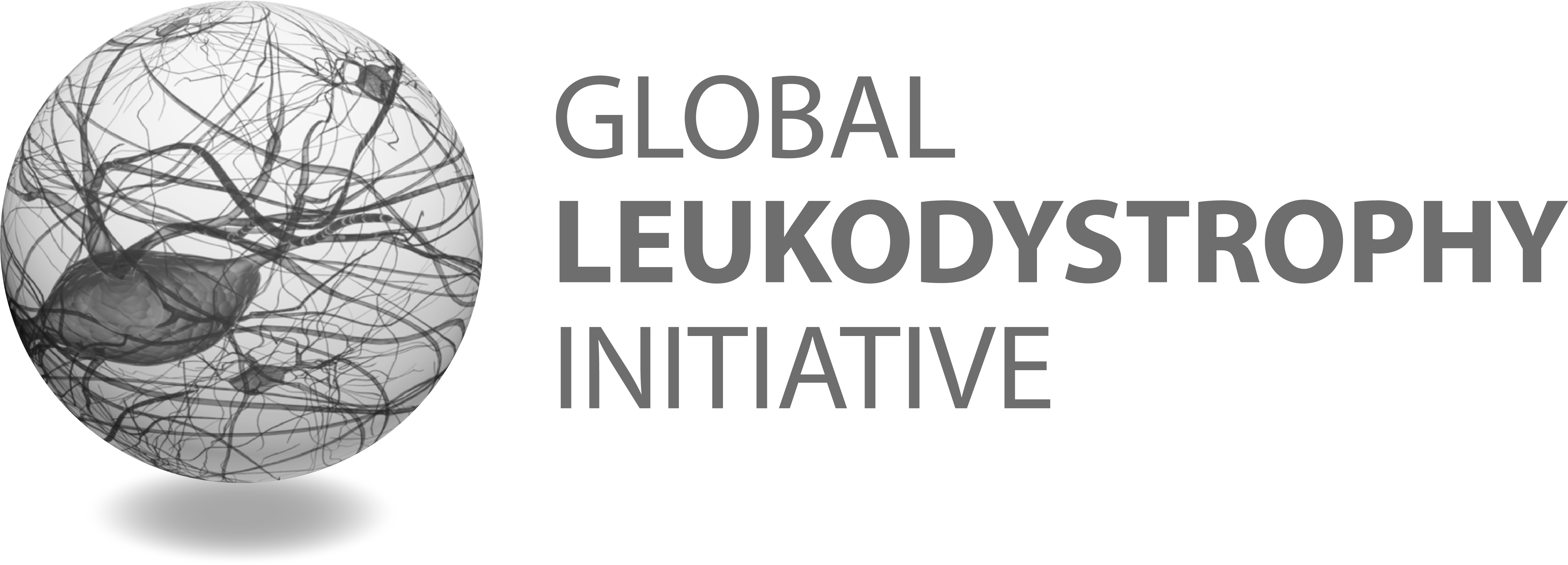Research Studies
Our mission is to advance medical research on rare diseases by providing support for clinical studies and facilitating collaboration, study enrollment and data sharing. Learn more here about RDCRN clinical studies, which are grouped by consortium and recruiting status. Click on the arrow to reveal a study summary; click on the protocol number and name to view a study page with more detailed information.
Brain Vascular Malformation Consortium
BVMC
Brain Vascular Malformation Consortium

6201: Modifiers of Disease Severity and Progression in Cerebral Cavernous Malformation
This project is focused on identification of modifiers of disease severity and progression in patients with familial cerebral cavernous malformation (FCCM), with the overall goal of identifying measurable outcomes and robust biomarkers that will help select high-risk patients and help monitor drug response in clinical trials.
6203: Cerebral Hemorrhage Risk in Hereditary Hemorrhagic Telangiectasia
To identify predictors of brain outcomes in HHT patients. We propose to leverage our multicenter network of HHT Centers to characterize comprehensive brain outcomes. We hypothesize that the presence of BAVMs (vs. HHT patients without BAVMs) and multiplicity of BAVMs will be associated with worsening functional outcome. We will use the modified Rankin Score (mRS) to measure the functional outcome. Furthermore to define a severe bleeding phenotype in HHT for clinical trial readiness. We hypothesize that weekly nasal bleeding duration (Patient-Reported Outcome Cumulative nasal Bleeding duration, or PRO-CB) in HHT will predict the need for invasive or life-sustaining therapies (surgery, urgent packing, blood transfusions, iron infusions). We propose to measure PRO-CB longitudinally in HHT patients and correlate with the need for invasive or life-sustaining therapies (primary outcome), as well as with ICH risk from BAVMs and with bleeding in other HHT organ phenotypes (including pulmonary AVMs and GI telangiectasia).
6211: Integrated Longitudinal Studies to Identify Biomarkers and Therapeutic Strategies for Sturge-Weber Syndrome
The objective is to integrate longitudinal clinical data, radiological data, and blood biomarkers of SWS patients to identify those at most risk to have severe neurological symptoms and to identify potential treatments (Aim 1). We will identify plasma and imaging biomarkers sensitive to exacerbation of clinical symptoms including seizures, headaches, or stroke-like episodes that may indicate disease progression and correlate with severe neurological symptoms (Aim 2). Finally, for enrolled patients who present with severe neurological symptoms blood samples will be screened for inflammatory changes by comparing plasma collected at baseline, during, and after the severe symptoms to identify predictive biomarkers for clinical trials (Aim 3).
6214: Sirolimus for Nosebleeds in HHT: A Phase II Pilot Study
This pilot study is to determine the safety and efficacy of oral sirolimus (blood trough level 6-10ng/ml) in patients with HHT that are experiencing moderate or severe epistaxis. The effect of oral sirolimus on epistaxis will be compared to baseline using the Patient-Reported Outcome of cumulative weekly nose Bleeding Duration (PRO-CB). The PRO-CB association with biomarker variability over the duration of the study will be investigated. In the pilot study subjects will be treated with 2mg of sirolimus once daily to obtain a trough level of 6-10ng/ml for 3 months.
Brittle Bone Disorders Consortium
BBDC
Brittle Bone Disorders Consortium

7701: Longitudinal Study of Osteogenesis Imperfecta
The purpose of this natural history study is to perform a long-term follow-up of a large group of people with osteogenesis imperfecta (OI). OI is a rare disorder that causes bones to break easily. People with OI may have broken bones with little or no trauma, curvature of the spine, dentinogenesis imperfecta (DI), and, in adult years, hearing loss. It is seen in both genders and all races. OI can range from very severe to very mild. This study will observe the progression of the disease from participants of all ages, races, and genders. We will see how often people with type I OI have vertebral compression fractures of the spine. We will follow people with all forms of OI to see how often they develop scoliosis (curvature of the spine) and how it affects lung function, ability to walk and quality of life. We will look at dental health in people with OI and how that impacts a person’s quality of life. The genetic cause of the brittle bone disease will be compared with things like severity, various features and response to treatments. The overall goal is to improve the health and quality of life of people with OI.
7707: Use of clear aligners for the treatment of dental malocclusion in individuals with Osteogenesis Imperfecta
Third-party Collaboration
The purpose of this study is to determine if it is safe to use clear aligners in correcting the misalignment of teeth in people with Osteogenesis imperfecta (OI). OI can affect the shape of the face, mouth and overall quality of life. Misalignment of teeth may interfere with oral hygiene, gum health, jaw function, opening of the jaw, chewing, breathing, and speech. There is very little information on the appropriate treatment for teeth misalignment in OI. Clear aligners are transparent plastic trays that are designed to fit over the teeth. With each new tray, teeth are moved a little at a time until they reach the desired position.
7708: Cardiopulmonary Outcomes in Osteogenesis Imperfecta
To quantify the factors that contribute to restrictive physiology (cardiopulmonary insufficiency) in the OI population
7709: Psychosocial Considerations in Adults with Brittle Bone Disease
The overall purpose of this study is to understand the mental health concerns, psychosocial functioning, and priority treatment needs of
individuals with OI.
7710: Pregnancy in Osteogenesis Imperfecta - Part 2: Complications in pregnancy and postpartum
To classify and describe rates of cesarean section, hemorrhage(bleeding), and fracture in
women with Osteogenesis Imperfecta (OI) in pregnancy.
7704: Dental Malocclusion and Craniofacial Development in OI
Quantitatively describe dental malocclusion and craniofacial abnormalities in individuals with moderate to severe osteogenesis imperfecta (OI)
7706: Multicenter study to evaluate safety of fresolimumab treatment in adults with moderate-to-severe Osteogenesis Imperfecta
Third-party Collaboration
The purpose of this study is to determine if fresolimumab is safe as a treatment for Osteogenesis Imperfecta (OI). OI is a rare disorder that causes bones to break easily. Studies have shown that TGF-β is a protein important in bone formation and that increased TGF-β activity leads to lower bone mass, strength and increased fractures. Fresolimumab is an antibody that can silence TGF-β. In studies with mice with OI, it has been shown that silencing TGF-β can lead to higher bone mass, quality and strength. In this study, we will evaluate the safety of of fresolimumab in two stages. In stage 1, we will evaluate the effect of two doses of fresolimumab on bone turnover and determine the dose that shows the greatest increase in bone density as compared to no treatment. This dose will be used for the repeat dose study where we will evaluate the effectiveness of multiple doses in increasing bone density, quality and strength.
Clinical Research in ALS and Related Disorders for Therapeutic Development
CReATe
Clinical Research in ALS and Related Disorders for Therapeutic Development

8002: Clinical Procedures to Support Research in ALS (CAPTURE-ALS)
The purpose of the Clinical Procedures to Support Research in ALS (CAPTURE-ALS) study is to utilize information collected in the medical record to learn more about a disease called amyotrophic lateral sclerosis (ALS) and related disorders.
8007: Study of ALS Reversals 2: Genetic Analyses (St.A.R. Protocol 2)
The purpose of the St.A.R. 2 study (Study of ALS Reversals 2: Genetic Analyses) is to try to understand why reversals of amyotrophic lateral sclerosis (ALS) and primary muscular atrophy (PMA) take place. The study will be enrolling patients with ALS and/or PMA reversals to give saliva samples in order to determine if the ALS or PMA reversal is because of certain changes in the genetic code.
8009: TRIAL READY
This study, being conducted under the auspice of the CReATe Consortium, will enroll patients with ALS and related disorders as well as healthy controls, with the goal of facilitating clinical validation of leading biological-fluid based biomarker candidates that may aid therapy development for patients with ALS and related disorders.
8011: Phenotype, Genotype and Biomarkers 2 (PGB2)
The purpose of this study is to learn more about amyotrophic lateral sclerosis (ALS) and other related neurodegenerative diseases, including frontotemporal dementia (FTD), primary lateral sclerosis (PLS), hereditary spastic paraplegia (HSP), progressive muscular atrophy (PMA) and multisystem proteinopathy (MSP). More precisely, the investigator wants to identify the links that exist between the disease phenotype (phenotype refers to observable signs and symptoms) and the disease genotype (genotype refers to your genetic information). The investigator also wants to identify biomarkers of ALS and related diseases.
Congenital and Perinatal Infections Consortium
CPIC
Congenital and Perinatal Infections Consortium

8603: A Phase I, Adaptive, Escalating Single-Dose and Multiple-Dose Pharmacokinetic and Safety Assessment of Letermovir in Infants with Symptomatic Congenital Cytomegalovirus Disease (DMID 21-0027)
Congenital cytomegalovirus (CMV) infection is common and the leading viral cause of sensorineural hearing loss (SNHL) and mental retardation in infants. Despite current treatment options, babies with symptomatic congenital CMV disease are still at risk for hearing loss and neurologic deficits. Letermovir is the first new antiviral treatment of CMV to be licensed in over two decades. Two groups will be enrolled, and letermovir will be administered for 14 days in subjects in both groups. All subjects also will receive valganciclovir as standard of care. Group 1 (n=4) will be given a single dose based on their weight of letermovir on Study Day 0, with a full PK profile obtained over the next 24 hours to verify that the selected dose does not exceed the targeted exposure. Blood specimens will be shipped within approximately 24 hours to the UAB Pharmacokinetic Lab and processed in real time in order to get results back to the study site within an anticipated 7 days. If the drug levels are acceptable, the subject begin a 14-day course of once daily oral letermovir. If the dose is not acceptable, the dose will be adjusted down in 2.5mg increments. Once 4 subjects have been enrolled in group 1, the data and safety monitoring board will review all safety and drug level data. If no concerns are identified, then 8 additional subjects will be enrolled in group 2. The group 2 subject will start the 14 day course of study medication. The dose for group will be based on the data reviewed by the safety committee for the group 1 subjects.
8601: Neonatal Enterovirus and Human Parechovirus Viral Sepsis: Natural History and Predictors of Morbidity and Mortality (DMID 19-0026)
The purpose of this study is to get a better understanding of what causes neonatal viral sepsis and to assess the impact of the infection on the babies' health over time. Enterovirus (EV) or human parechovirus (HPeV) are very common viruses that can cause neonatal viral sepsis. Information gained from this study may guide diagnosis and treatment of babies with neonatal viral sepsis in the future. This study will observe babies with neonatal EV or HPeV sepsis to assess and characterize the complications affecting them. The study will also identify key clinical measurements and tests that help predict the health outcomes of children with neonatal EV and HPeV sepsis. Further, although EV and HPeV are common causes of neonatal viral sepsis, this study seeks to identify other unknown viruses linked to neonatal viral sepsis. The information generated by this study will lay the foundation for clinical trial studies of antiviral drugs to treat neonatal viral sepsis.
8602: A Phase I Adaptive, Multiple Dose Pharmacokinetic and Safety Assessment of Valacyclovir in Infants At Risk of Acquiring Neonatal Herpes Simplex Virus Disease (DMID 20-0033)
The purpose of this study is to evaluate at-risk babies to determine the appropriate dose of oral valacyclovir comparable to the intravenous (IV) acyclovir doses typically used to treat babies with neonatal Herpes Simplex Virus (HSV) disease. IV acyclovir is best for the treatment of babies who already have HSV disease, but it is not ideal to prevent HSV disease because there are risks associated with IV use in babies. Valacyclovir is metabolized to become acyclovir, and although it has been studied in babies as young as one month old, there are no dosing recommendations for those less than three months old. This study focuses on at-risk babies whose mothers have a history of genital HSV infection and have been taking oral acyclovir or valacyclovir for several weeks before delivery. By studying the blood concentration, metabolism, clearance and safety profile of valacyclovir in infants less than one month old, we will determine the best dose of valacyclovir to prevent HSV infection when babies are exposed to it at birth. We will also inform larger studies using valacyclovir to treat neonatal HSV disease.
8604: A Retrospective Follow-up Study of the Durability of Antiviral Therapy on Long-Term Hearing and Neurodevelopmental Outcomes Among Patients Treated for Congenital Cytomegalovirus Infection as Infants or Toddlers (DMID 22-0013)
Congenital cytomegalovirus (CMV) infection is the leading non-genetic cause of sensorineural hearing loss (SNHL) and the most frequent viral cause of mental retardation. Approximately 10% of infants born with CMV infection are symptomatic at birth, and of these, one-third will develop SNHL and two-thirds will experience developmental delays. A previous clinical trial run by the Collaborative Antiviral Study Group (CASG study 112) studied babies with congenital CMV infection who received either 6 weeks or 6 months of oral valganciclovir therapy. The results from this study suggested that 6 months of oral valganciclovir improved measures of neurodevelopment and hearing compared to 6 weeks of the treatment. The purpose of the current study is to assess participants from previous CASG studies and patients treated clinically for cCMV. The goal is to determine if there are long-term benefits of antiviral therapy on hearing and neurodevelopmental outcomes. Further, the current study will examine the long-term safety profile of valganciclovir when administered during infancy by assessing reports of cancer diagnoses and signs of puberty.
Consortium of Eosinophilic Gastrointestinal Disease Researchers
CEGIR
Consortium of Eosinophilic Gastrointestinal Disease Researchers

7801: A Prospective, Multicenter Study to Compare and Validate Endoscopic, Histologic, Molecular, and Patient-Reported Outcomes in Pediatric and Adult Patients with Eosinophilic Esophagitis (EoE), Gastritis (EoG), Colitis (EoC) and Enteritis (EoN)
CEGIR is conducting this study because they want to learn more about Eosinophilic Gastrointestinal Diseases (EGIDs). As part of that goal, one area of study will compare how well a patient feels – their symptoms – with what the tissue samples look like under a microscope. The study aims to answer a series of questions, including the following: - What if the tissue looks good, but you are still experiencing symptoms? - What if the symptoms have subsided, but the eosinophil counts haven’t changed?
7811: An Open-Label Study Of Zemaira (Alpha 1-Trypsin Inhibitor) In Subjects With Eosinophilic Esophagitis
This is a phase 2, open-label trial testing the efficacy and safety of Zemaira in EoE. Qualifying participants will receive weekly intravenous infusions of 120 mg/kg body weight (BW) dose/week for 8 weeks for a total of 8 infusions. All participants will be followed for an additional 12 weeks after the last dose of study drug.
7812: Pilot Assessment to Find Evidence of Gastric Motility Abnormalities in Eosinophilic Gastric Disorders (OAT-FEED)
The study is a cross-sectional observational study designed to determine if eosinophilic gastritis (EoG) results in gastric mobility impairment.
7810: A Randomized, Double-Blind, Placebo-Controlled Clinical Trial to Evaluate the Efficacy of Dupilumab (ANTI-IL4RA) in Subjects with Eosinophilic Gastritis
This study is being conducted to determine the safety and effectiveness of a study drug called dupilumab in adolescents and adults with eosinophilic gastritis (EoG) with or without esophageal and/or duodenal eosinophilia.
Developmental Synaptopathies Consortium
DSC
Developmental Synaptopathies Consortium

Global Leukodystrophy Initiative Clinical Trials Network
GLIA-CTN
Global Leukodystrophy Initiative Clinical Trials Network

8501: Myelin Disorders Biorepository Project (MDBP)
The purpose of this study is to: (a) define novel homogeneous groups of patients with leukodystrophies and work toward finding the cause of these disorders; (b) assess the validity and utility of next-generation sequencing in the diagnosis of leukodystrophies; (c) establish disease mechanisms in selected known leukodystrophies; (d) track current care and natural history of these patients to define the longitudinal course and determinants of outcomes in these disorders; and (e) contacting subjects with specific diagnoses (or lack thereof) with information about other research studies or clinical programs that may be beneficial.
8502: GLIA-CTN EHR Data Extraction Project
This study seeks to query the Electronic Health Record (EHR) at participating institutions in an automated fashion in order to development a large-scale library of clinically pertinent natural history data for individuals with a confirmed diagnosis of leukodystrophy. Automated data extraction techniques will be supplemented by traditional/manual chart abstraction approaches to ensure data integrity. Data collection and analysis methodologies will undergo face validation, inter-rater reliability, reproducibility, longitudinal stability, internal validation and construct validity under the careful oversight of the GLIA-CTN Data Integration Core (DIC) based at the Children's Hospital of Philadelphia.
8503: GLIA-CTN AMN Motor Function Study
The goal of this clinical project is to create a portfolio of disease-specific outcome assessments to facilitate design and execution of future therapeutic trials for adults with AMN. Specifically, investigators will determine the ability of a novel AMN rating scale to measure function, including a comparison of the trajectory between this rating scale and the Patient Reported Outcome (PRO) data obtained via RDCRN Protocol No. 8501. Finally, investigators will assess the rate of change in quantitative ataxia measures using force plate technology, and then compare this to wearable devices in enrolled individuals.
8504: GLIA-CTN CSF Biomarker Study
The primary objective of this research study is to identify and validate novel biomarkers in CSF, and to establish their correlation to clinical features and outcomes in specific leukodystrophies; for example, we propose to explore known protein biomarkers in AGS and AxD, including GFAP, NFL, and IP10, as well as candidate biomarkers such as inflammatory proteins including cytokines and chemokines, structural proteins, cell surface proteins, and markers of myelination and neuronal function. The study also seeks to characterize the stability of known and novel biomarkers under different shipping and storage conditions, which will allow investigators to explore the feasibility of multi-center biomarker collection procedures, with centralized processing and storage, in preparation for similar approaches in the context of future clinical trials for various leukodystrophies. Assay validity will be investigated using both intra- and inter-assay measurements.
Myasthenia Gravis Rare Disease Network
MGNet
Myasthenia Gravis Rare Disease Network

8203: Genome Wide Association Study for Muscle Specific Kinase Myasthenia Gravis
Study personnel will perform broad outreach via social media, patient advocacy groups, academic institutions to identify subjects with MUSK myasthenia who will be willing to provide verification of laboratory diagnosis, medical and family history, and a saliva sample. Subjects will be able to contact the study personnel by website, email, phone, and mail. Once inclusion criteria are met, saliva collection kit will be mailed with a return mailer. Samples will be stored in the GW biorepository until the study is complete. Saliva will then be shipped to NIH after an appropriate material transfer agreement is approved.
8201: Explore MG 2
Designed to better understand disease characteristics and identify treatment predictive and responsive biomarkers for myasthenia gravis. A total of 300-400 participants with confirmed diagnosis of myasthenia gravis are expected to be enrolled in the study.
8202: Adapting Disease Specific Outcome Measures Pilot Trial for Telehealth in Myasthenia Gravis (ADAPT-teleMG)
The Adapting Disease Specific Outcome Measures Pilot Trial for Telehealth in Myasthenia Gravis is a pilot study designed to better understand the use of modified clinical assessments during telehealth visits for patients with Myasthenia Gravis. A total of 50 adult participants with confirmed diagnosis of MG, with a range of disease severity will be enrolled across sites.
Network for Advancing Sex Chromosome Aneuploidy Research Readiness
NASCARR
Network for Advancing Sex Chromosome Aneuploidy Research Readiness

North American Mitochondrial Disease Consortium
NAMDC
North American Mitochondrial Disease Consortium

7413: Advanced Genetic Study and Pilot Newborn Screening for Disorders of Pyruvate Metabolism
Continue the longitudinal natural history study of phenotypic and genetic features of PDC deficiencies by integration with the NAMDC Patient Data Registry and Biorepository, recruitment of a broad group of subjects, and detailed longitudinal follow-up, to identify and objective measurable clinically relevant outcomes, biomarkers, and responses to treatments.
7416: L-Citrulline treatment of nitric oxide deficiency in MELAS: a Phase I dose-finding and safety study
Establish the maximum tolerable dose of L-citrulline in patients with MELAS.
7426: Harnessing resilience in adults with primary mitochondrial disease: A pilot study investigating the feasibility of the Promoting Resilience in Stress Management (PRISM) and clinical-focused narrative (CFN) interventions
Evaluate PRISM and CFN interventions in adults with primary mitochondrial disease (PMD). Develop basic statistical pilot information to develop a first efficacy study.
Phenylalanine Families and Researchers Exploring Evidence
PHEFREE
Phenylalanine Families and Researchers Exploring Evidence

Urea Cycle Disorders Consortium
UCDC
Urea Cycle Disorders Consortium

5101: Longitudinal Study of Urea Cycle Disorders
Long-term observation of the impact of UCDs on physical and neurological functioning, the relationship between health indicators and disease severity and the efficiency of UCD therapies.
5111: Orphan Europe Carbaglu® Surveillance Protocol In Collaboration with the Longitudinal Study of Urea Cycle Disorders
A post-marketing surveillance of carglumic acid (Carbaglu) to obtain long-term clinical safety information. Carglumic acid was approved by the United States Food and Drug Administration (FDA) for treatment of acute hyperammonemia due to N-acetylglutamate synthase (NAGS) deficiency.
5113: Biomarkers of Neurological Injury and Recovery in Urea Cycle Disorders
Study of how UCDs affect thinking, body chemistry and brain structure using magnetic resonance imaging (MRI) and behavioral testing.
5119: Electrographic Seizures in Hyperammonemia
The purpose of this research is to determine if silent seizures (electrographic seizures) occur during a hyperammonemic (HA) episode in patients with urea cycle disorders (UCD). Urea cycle disorders lead to increased ammonia due to problems breaking down protein. The symptoms of UCD may present at birth, childhood or adulthood (milder deficiencies) and are associated with cognitive deficits, changes in behavior, brain swelling and seizures. Sometimes the seizures are not clinically obvious, but can be picked up if a video recording and concurrent EEG is used, also known as a continuous video electroencephalogram (cVEEG). cVEEG is used in many intensive care units across the country to pick up seizures. We want to determine if having seizures due to HA leads to any adverse cognitive outcomes, and want to use the EEG to identify any changes that may be associated with that.
5120: Noninvasive Biomarkers of Hepatic Fibrosis in Urea Cycle Disorders
The purpose of this study is to measure liver stiffness and chemicals in the blood that test liver injury and function in four urea cycle disorders
5121: Neurodevelopmental Assessments in the Longitudinal Study of Urea Cycle Disorders: Comparison of Standard (Traditional) Neuropsychological Battery and NIH Toolbox
We are doing this study to see how the results of two sets of tools used to measure developmental progress relate to one another and how acceptable completing each of these measures is to children and families of children with Urea Cycle Disorders. We are anxious to make longitudinal assessment (repeated observations over time) of cognition easier, quicker and more accessible for families of children with urea cycle disorders. In order to do so we want to understand the relationship between the 2 sets of measures.
5123: Novel food photography method to measure dietary intake in patients with UCDs
The purpose of this research study is to test a new method to measure food intake using smart phone photos of your food before and after meals. We will compare the smart phone food photos to a 3-day diet record and we will measure how many calories you burn.
5105: N-carbamylglutamate in the Treatment of Hyperammonemia
In this research study, Carbaglu was given to 5 patients with CPS1 deficiency and similar outcome measures were tested. Four patients demonstrated increased ureagenesis (urea production) and a decrease in the overall median ammonia levels with Carbaglu treatment (115 vs 82 μmol/L). One patient was given a longer-term trial of Carbaglu and had long-term stabilization of ammonia levels and was slowly weaned off of sodium phenylbutyrate. Future research will include identifying CPS1 mutations that may be responsive to NCG and a clinical trial of NCG in patients who experience acute hyperammonemia (high blood ammonia levels).
5114: Effect of Nitric Oxide (NO) Supplementation on Neurocognitive Measures in Argininosuccinate Lyase Deficiency (ASLD)
In this study, the investigators used mice with arginino-succinate lyase deficiency (ASLD) and cells from patients with ASLD to study the mechanisms involved in causing high blood pressure in this disorder, which is the second most common UCD (Figure 4). The investigators show that loss of the urea cycle enzyme ASL in the lining cells of the blood vessels leads to reduction of a chemical called nitric oxide (NO) and an increase in oxidative stress that lead to vascular dysfunction. Using data from a human trial that was funded by the Urea Cycle Disorders Consortium (UCDC), they also show that the blood pressure in individuals with ASLD can be elevated.
